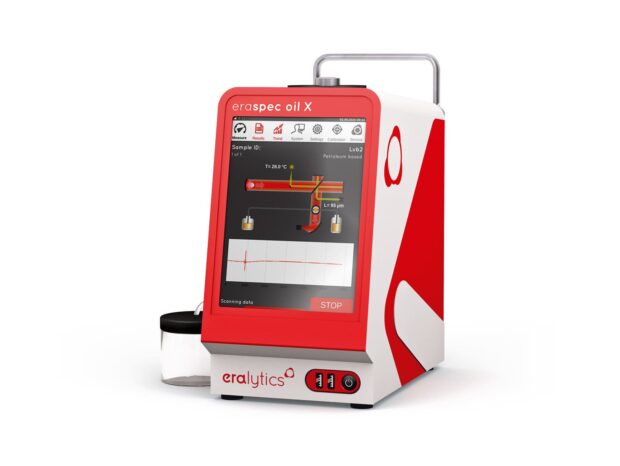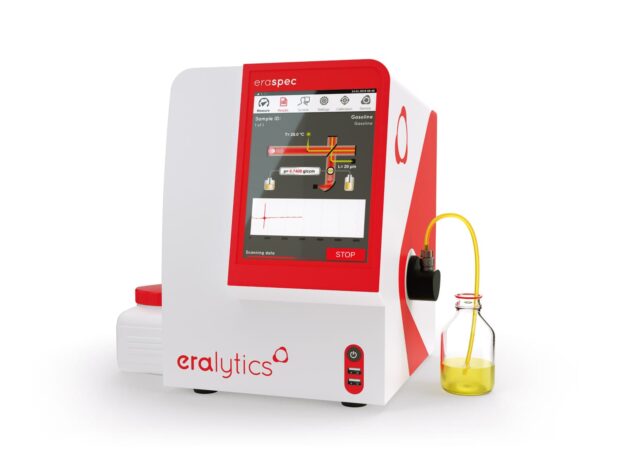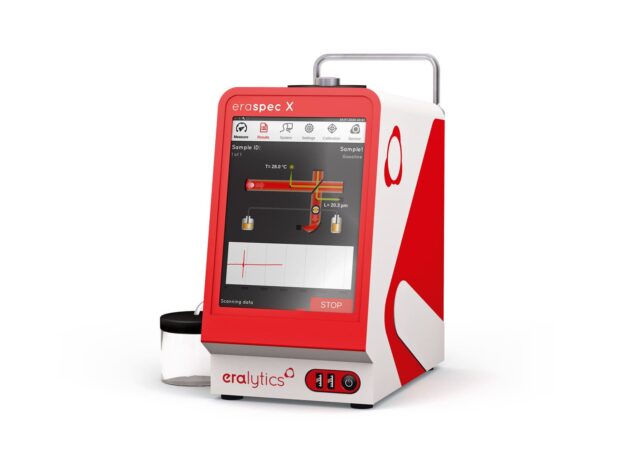Standard Test Method for Determination of Biodiesel (Fatty Acid Methyl Ester) and Triglyceride Content in Diesel Fuel Oil Using Mid-Infrared Spectroscopy (FTIR Transmission Method).
Get more information about the standard at ASTM D7806-20.
ASTM D7806-20 is a standard test method used to determine the biodiesel content (Fatty Acid Methyl Esters, FAME) and triglyceride content in diesel fuel oils, ensuring quality control, engine performance, and compliance with environmental regulations. This method employs Mid-Infrared Spectroscopy (FTIR), specifically using the transmission mode, to analyze the chemical composition of the fuel. FTIR spectroscopy is a non-destructive analytical technique that measures the absorption of infrared light by the sample. Each component in the fuel absorbs light at characteristic wavelengths, which can be used to identify and quantify the different constituents, including biodiesel and triglycerides. Using FTIR technology, this standard enables rapid, non-destructive analysis that is widely used in industries such as biofuels, automotive, and environmental testing.
Details
The primary application of ASTM D7806 is to ensure proper blending and quality control of biodiesel in diesel fuel, which is important for regulatory compliance, engine performance, and environmental sustainability. The presence of biodiesel affects the fuel properties such as viscosity, combustion characteristics, and emissions, making it essential to accurately quantify its content. Additionally, the test method can also detect triglycerides—residual compounds from biodiesel production—which can negatively affect fuel quality and engine efficiency.
Industries & Applications
ASTM D7806 is widely applied in the following industries:
- Biofuels: Ensures that biodiesel content is accurately blended with diesel to meet regulatory standards and maintain fuel quality
- Automotive and Diesel Engines: Used in quality control to ensure that diesel fuel blends contain the appropriate amount of biodiesel for optimal engine performance and reduced emissions
- Environmental: Helps monitor and ensure compliance with renewable energy mandates and environmental standards for fuel emissions


